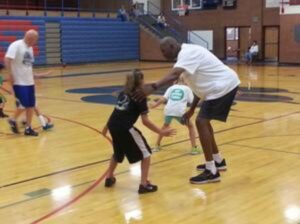How Much Fun Should Your Child Have Playing Sports?
If you ask parents and coaches of small kids, they will say it should be all fun. But if you ask parents and coaches of older kids, they will tell you that fun is part of playing sports, but there are also sacrifices to be made. Where does fun fit into the different levels of sports?
When our athletes are little, it should be all about fun
I surely hope that parents of kids in pee-wee soccer and t-ball are not forcing their kids to play the game because they are already entertaining hopes of college scholarships. Slow down, folks. Let the kids have fun. Let them decide if they really like to kick balls and swing bats. Quit trying to make super-stars out of your little-leaguers.
Fast-forward to middle school: When sports should still be mostly fun with hard work mixed in
By then, your athlete knows that practice is not always fun. Coaches are not always nice. Teammates are not always good team players. But still, if your kid hates going to practice every day, dreads game days and shows no sign of ambition or motivation, then it’s a pretty good sign he’s not having a whole lot of fun. What do you do then? Make him play anyway?
Yes. And No. Yes, you make him finish the season because learning to persist, at least for a season, is a good habit to form. No, you don’t make him play the sport again. It’s not worth the battle. When my 19-year-old was 10, she tried piano lessons. She lasted for 5 months. Getting her to practice every day was a fight. Why am I paying for this? I asked myself. She showed absolutely no interest or aptitude in becoming a musician. So, we quit the piano lessons. We tried the same with ballet, cheerleading, and gymnastics. No, no, and no. And guess what?
She turned her focus back to team sports, where we’d started when she was four. You see, for her, sports was still more fun than it was work.
In high school, it’s a balance of hard work and fun
At this point, the hard work/fun scale has tipped from all fun to mostly fun to a pretty even mix of fun and hard work. And that intensifies when your kid gets to varsity. Hard work to make the team. Hard work to get playing time. And even harder work if your athlete wants to play in college. What does hard work look like? Time in the weight room. Extra conditioning. Travel teams. Personal coaching. It depends on how far your athlete wants to go.
Obviously, the higher the level of sports, the harder the work. But still, the sport should be fun. If your kid doesn’t like playing a sport at all, then you should back off and let him choose to play or not. If he feels pressure to play a sport that he doesn’t enjoy, then believe me, it will not just be painful for your athlete, it will be very unpleasant for you. The hard work they once tolerated because they were having fun is now unbearable.
And guess who has to listen to their grumpy attitudes when they come home from practice? Who gets to hear them complain about the hard work and the unfair coach and the selfish teammates? YOU.
Isn’t it fun?
How useful was this post?
Click on a star to rate it!
Average rating 0 / 5. Vote count: 0
No votes so far! Be the first to rate this post.




